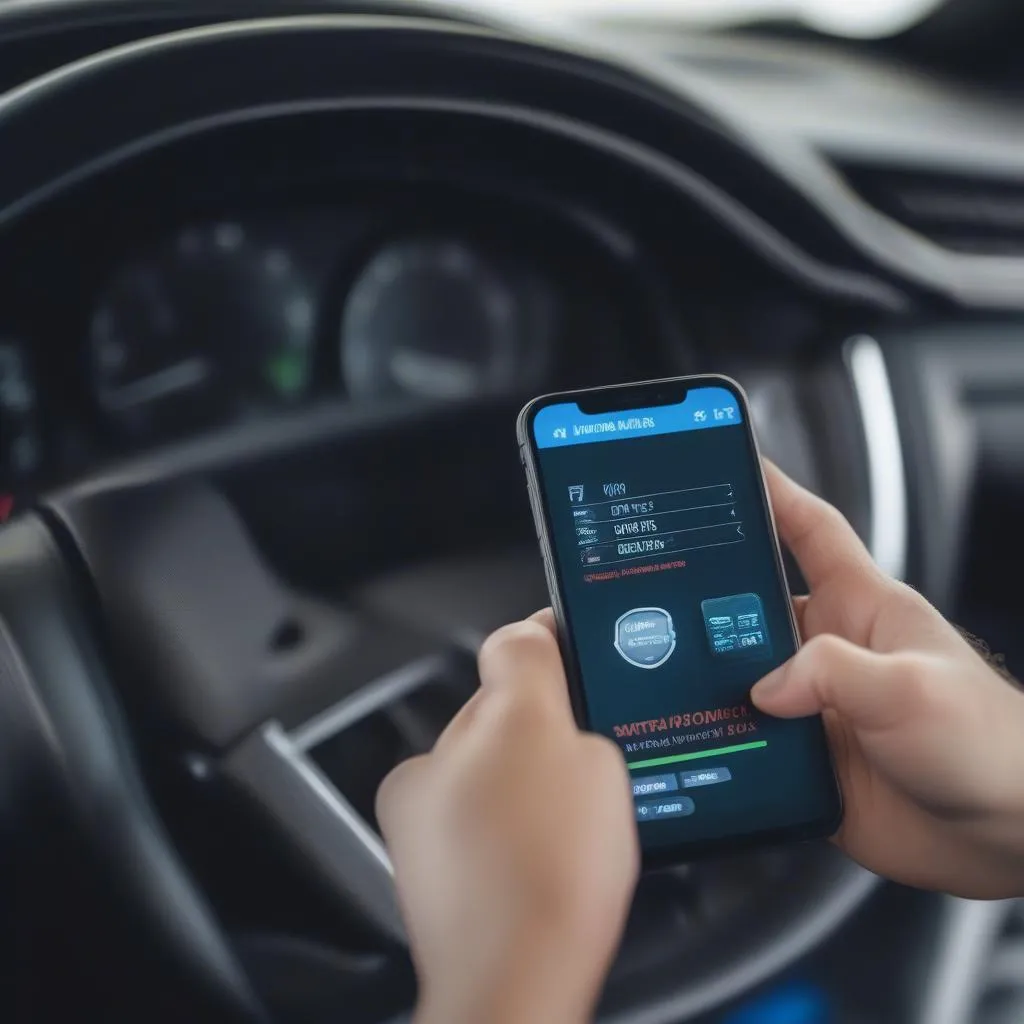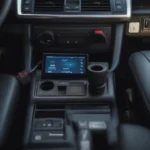Imagine this: You’re cruising down the Pacific Coast Highway in your vintage Ford Mustang, the California sun warming your face. Suddenly, your engine sputters, and the “check engine” light throws a yellow glare across your dashboard. The feeling of freedom evaporates, replaced by a sinking feeling of dread. What do you do?
This, my friends, is where the magic of diagnostic scan tools comes in. These handy devices are the detectives of the automotive world, able to read your car’s computer system, pinpoint the issue, and get you back on the road.
But with so many types of scan tools on the market, how do you choose the right one? Don’t worry, we’re here to break it down for you.
Understanding the Importance of Diagnostic Scan Tools
Before we dive into the different types, let’s understand why these tools are so crucial:
From a Mechanic’s Perspective: Imagine trying to diagnose an engine problem by just listening to the sound it makes. Difficult, right? Diagnostic scan tools provide mechanics with real-time data from the vehicle’s computer, making diagnoses faster, more accurate, and ultimately, more cost-effective for the car owner.
From an Automotive Engineer’s Perspective: These tools are instrumental in the development and testing phases of new vehicles. They allow engineers to analyze data, identify potential issues, and ensure optimal performance before a car even hits the showroom floor.
From a Car Owner’s Perspective: Knowing what’s wrong with your car before you take it to a mechanic can save you time, money, and potential headaches. Some scan tools even allow you to perform basic maintenance yourself!
Diving into the Different Types: Your Diagnostic Scan Tool Cheat Sheet
Alright, let’s talk tools! Here’s a breakdown of the most common types of diagnostic scan tools:
1. OBD-II Scanners: The Everyday Hero
These are the most common and affordable type of scan tool, perfect for car owners and DIY enthusiasts. They plug into your car’s OBD-II port (usually located under the dashboard) and can read and clear basic engine fault codes.
Think of it like this: Your car’s computer speaks in code. An OBD-II scanner acts as a translator, telling you what those codes mean.
- Pros: Affordable, easy to use, widely available.
- Cons: Limited functionality, mainly focused on engine codes.
Example: You can find a great OBD-II scanner at your local auto parts store in cities like Detroit, Michigan, or online.
2. Dealer Level Scan Tools: The Specialist
If you’re looking for a tool that can do it all, this is it. Dealer level scan tools, like the ones used at dealerships for brands like Mercedes-Benz or BMW, provide comprehensive diagnostics for all vehicle systems, including engine, transmission, ABS, airbags, and more.
Think of it like this: This is the tool your doctor uses – it provides a complete picture of your car’s health.
- Pros: Unmatched functionality, access to manufacturer-specific codes, can perform advanced functions like programming and module coding.
- Cons: Expensive, often specific to certain car makes, require a higher level of technical expertise.
Example: Imagine a mechanic in Stuttgart, Germany, using a dealer level scan tool to diagnose a complex electrical issue in a Porsche 911.
3. Mobile Device-Based Scanners: The Future is Now
These innovative tools use your smartphone or tablet as the display, connecting wirelessly to a device that plugs into your car’s OBD-II port. They offer a great balance of affordability and functionality.
Think of it like this: It’s like having a personal mechanic in your pocket!
- Pros: Convenient, portable, user-friendly interface, often come with additional features like trip logging and performance monitoring.
- Cons: Functionality can be limited compared to dealer level tools.
Example: Imagine using your phone to check your car’s engine light while stuck in traffic on the busy streets of London.
 Mobile Device Scanner
Mobile Device Scanner
FAQs: Answering Your Burning Questions
1. Can I use any scan tool on any car?
Not necessarily. While most cars manufactured after 1996 in the US are equipped with the standard OBD-II port, some older vehicles or those from other countries may have different systems. Additionally, dealer level tools are often brand-specific.
2. Do I need a scan tool if my car is running fine?
While not absolutely necessary, having a scan tool can be beneficial even if your car seems fine. It allows you to stay on top of potential issues, monitor your car’s health, and even potentially catch minor problems before they turn into major headaches.
3. Are diagnostic scan tools difficult to use?
It depends on the tool. OBD-II scanners are generally very user-friendly, while dealer-level tools require more technical know-how.
Looking for More? We’ve Got You Covered
If you’re interested in learning more about specific types of scan tools, check out these articles:
- Learn about tools for scanning scheduled tasks on vehicle systems: [link to https://diagxcar.com/tool-to-scan-scheduled-tasks-on-systems/ with relevant anchor text, such as “scanning scheduled tasks” or “vehicle system scanners”]
- Explore the world of 6.0 scan tools: [link to https://diagxcar.com/6-0-scan-tool/ with relevant anchor text, such as “6.0 scan tools” or “diesel engine scanners”]
- Discover the basics of OBD-II scanners: [link to https://diagxcar.com/ob2-scanner/ with relevant anchor text, such as “OBD-II scanners” or “engine code readers”]
Need Help Choosing the Right Tool?
Don’t hesitate to reach out! Our team of automotive experts is here to help you find the perfect diagnostic scan tool for your needs. Contact us on WhatsApp at +84767531508 and we’ll be happy to assist you.
The Road to Automotive Empowerment
Remember, knowledge is power. Understanding the different types of diagnostic scan tools empowers you to take control of your car’s maintenance, save money, and maybe even impress your mechanic!


